New program is a case of requested development
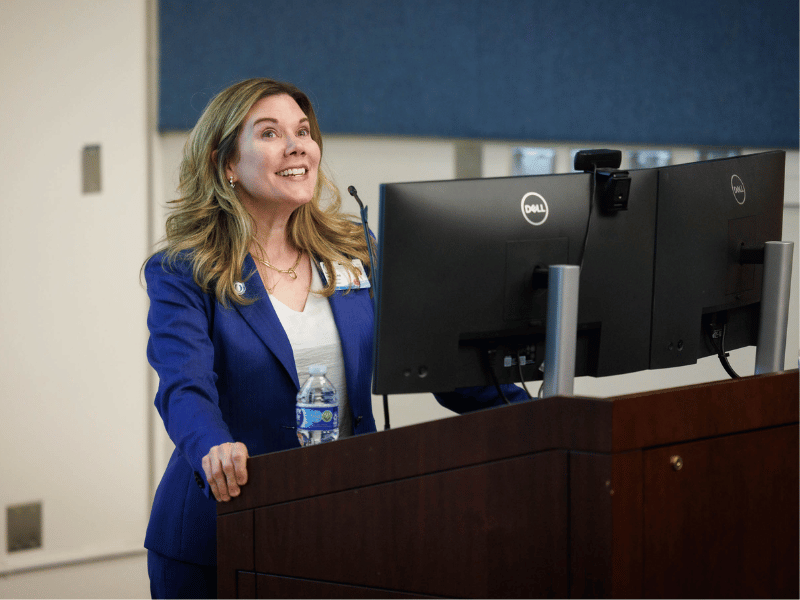
It’s called Faculty Focus – a new and thriving program at the University of Mississippi Medical Center – but don’t let the name throw you off.
Faculty member or not, you have a stake in it because, in the long run, its focus is on better health care for Mississippi, the program’s architects say.
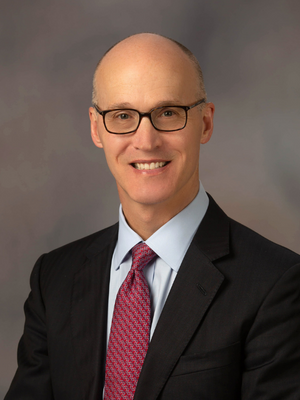
“When our 1,000 or so graduates leave us every year, most choose to take care of patients in Mississippi,” said Dr. Scott Rodgers, associate vice chancellor for academic affairs at UMMC.
“We want those graduates to have the best training, so that they can give the best care possible. And all of that really begins with your faculty – so, we must invest in them at every stage of their development.”
That’s what Faculty Focus does: It invests in UMMC’s 1,100 faculty members by providing an ongoing series of presentations centered on three general areas they requested themselves as they pursue improvement and excellence.
It is unlike any faculty development program UMMC has ever offered, and it started by having teachers take a quiz.
They took it in 2021: the StandPoint Faculty Engagement Survey from the Association of American Medical Colleges.
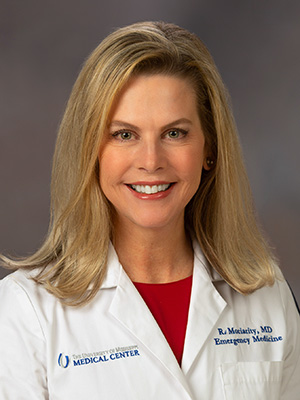
“It’s a recurring survey and this particular one identified faculty development as an opportunity,” said Dr. Risa Moriarity, professor and executive vice chair of emergency medicine at UMMC.
As a result of that survey, Moriarity received an added title and job; as the first-ever associate chief faculty affairs officer, she created, and is focusing on, Faculty Focus.
She does so as a member of the Office of Faculty Affairs, which identified these areas of faculty interest, thanks to StandPoint: teaching skills, research and scholarship, leadership skills.
“When you’re a faculty member looking for opportunities around the country, you are looking for a place that will support you and give you something that will help make you better,” Rodgers said.
“On top of that, social progress and economic progress in this state hinge on the quality of our graduates – and their success depends on the quality of our faculty.”
After the Office of Faculty Affairs secured funding, Faculty Focus held its inaugural presentation in October; more than a dozen events have followed in the ensuing six months. The response has been encouraging.
“Attendance has been great,” Moriarity said. “We’ve had more than 500 attendees.”
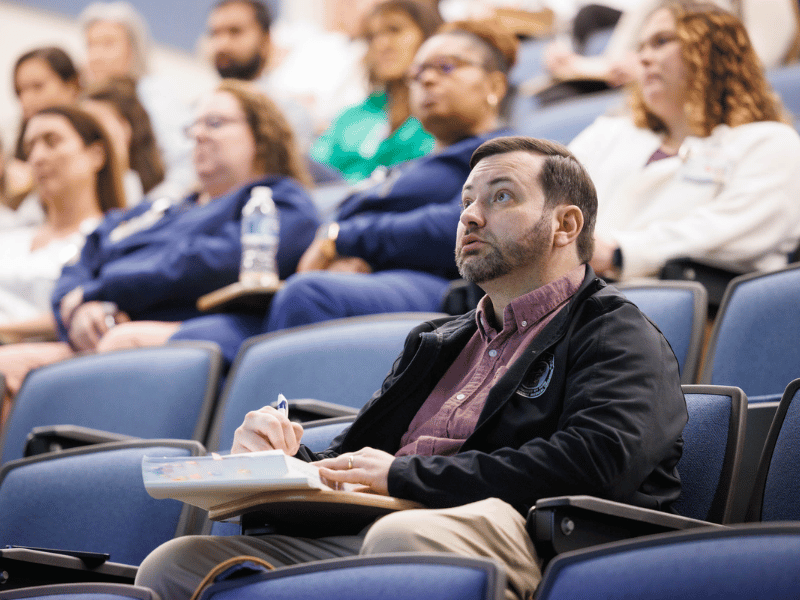
Certainly, turnout has been helped by one of the distinguishing features of Faculty Focus: It is for everyone, for all schools. There are other faculty development programs on campus, including those in the School of Health Related Professions and the School of Medicine. The difference is that Faculty Focus is centralized, with campus-wide, frequently recurring events.
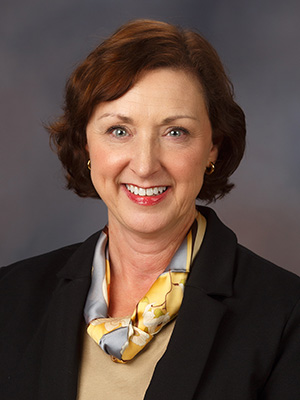
“It makes for an interprofessional atmosphere,” said Mandy Scott, faculty development director, who, along with Moriarity, forged Faculty Focus. “Schools can now reach a broader audience.”
That audience has tapped into such offerings as “Teaching Today’s Virtual Learner” and “Navigating Research as a New Faculty Member.” Upcoming sessions include two “Public Speaking Essentials” workshops on April 24, for which registration is already full, and a virtual presentation at noon on May 1: “Assessing Your Personal Leadership Style.”
More talks are scheduled through mid-June, with many more expected to follow this summer.
Attendance will serve as a measure of Faculty Focus’ success, as will evaluations in Continuing Education Central – faculty can earn CE credits through the program.
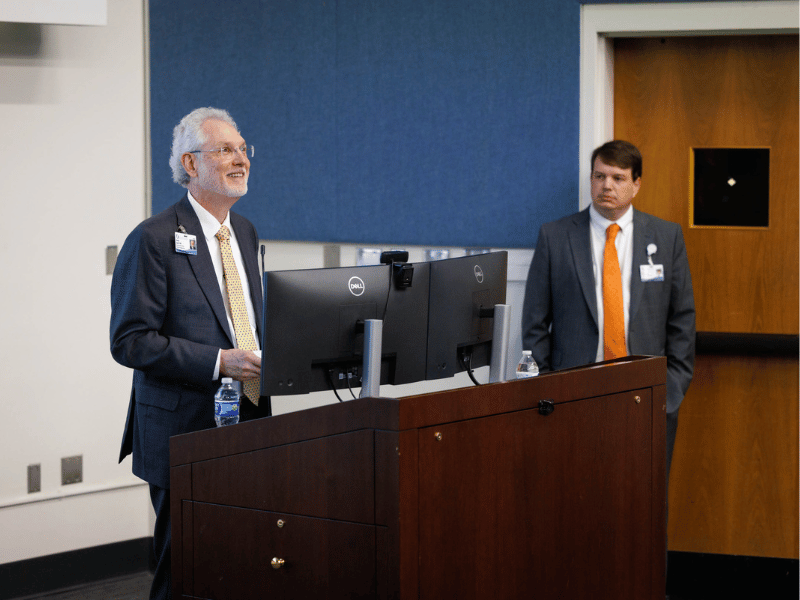
“It will be interesting to see what the attendance will be a year from now, and what we would need to maintain it,” said Dr. Patrick O. Smith, chief faculty affairs officer and associate dean for faculty affairs in the School of Medicine.
“That’s what matters to me – being able to continue learning what the faculty wants.” Aiding the cause will be another StandPoint survey, slated for the fall.
“What we do know for sure is that they want to develop and grow,” Smith said. “And, if individual faculty members feel connected, if they know that their work has meaning and purpose, in the long term, we will have a very healthy and productive workforce, one that can meet Mississippi’s health care needs.”
On the horizon for Faculty Focus is an annual longitudinal cohort based leadership program. Set to begin in 2025, it will accept, from a group of nominees, a small group of faculty members who will commit to a “deeper dive” development-wise, Rodgers said.
“I imagine there will be a lot of interest in that,” he said. “We’re glad to know that our faculty want more, that they’re eager for knowledge.
“You’re only as good as your people. You can have beautiful buildings, state-of-the-art equipment, but none of it matters if you don’t have the right people. Things like faculty development – that’s what will get us the right people.”


